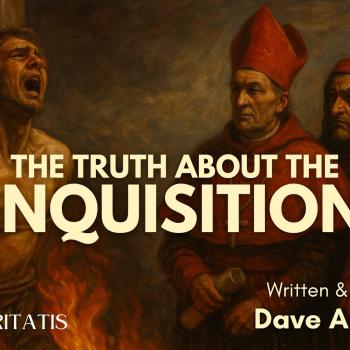Editor's Note: For more on the social justice themes of the Hunger Games trilogy, don't miss Julie Clawson's new ebook, The Hunger Games and the Gospel.
Last week, during one of the interviews I gave the Los Angeles Times on the movie The Hunger Games, this year's record-breaking blockbuster, writer Steven Zeitchik asked me a question about the topicality of the decade's top tween/teen cultural phenomena. Do Harry Potter, Twilight, and The Hunger Games really have anything to say to us?
Steven's point—and he's not the only critic to suggest it—was that these works seem to many to be entertainments largely devoid of topical content. The Guardian suggested that Katniss Everdeen's story in The Hunger Games is about as relevant to the everyday lives of its readers and viewers as the stories of Harry Potter and Twilight's Bella and Edward—which, they implied, is not very relevant at all.
My own take is different, and grows out of my work as literary and cultural critic. Science fiction, fantasy, and horror stories are often about things a lot deeper than their obvious storylines. Politics. Ethics. Morality. As C. S. Lewis noted half a century ago, when readers enter into a story that isn't identifiably their own reality—whether that reality contains a school for wizards, gentle and sexy vampires, or a dystopian reality show—they are actually more, not less, open to learning from the story's themes, since they don't automatically erect defenses against ideas. That's why really good popular culture is almost always in some ways about the society that makes it so popular.
I wrote in my book on Harry Potter that the Potter books—and films—actually draw increasingly from post 9/11 events, which helps explain why the series becomes progressively darker as we near the end. They may be entertaining, but they're also dealing with recent issues such as torture, government control of information, and executive power.
While I don't get Twilight myself, it's clear from their amazing popularity among girls and women that these stories are tapping into some very real tensions among women about the inadequacies of today's men and being forced to take care of themselves. (I think, for example, of all the single-parent families headed by a female, think of all the absent mates and partners, think of men putting off marriage because they can't find jobs.) Twilight offers some wish fulfillment for even supremely capable females about being supported, protected, and loved up by someone strong and sparkly—for eternity!
The Hunger Games too deals with some powerful current socio-political tensions. Author Suzanne Collins spoke of how the story originally grew out of her channel-surfing that conflated reality TV and footage of the War on Terror. The story forces us into the uncomfortable perspective of identifying with the reality-game consuming citizens of Panem (think the Latin phrase "panem et circenses," or "Bread and Circuses") as we root for Katniss Everdeen (Jennifer Lawrence) in the Games and celebrate the deaths of the contestants we dislike. (Although, I thought the film had a bit more sympathy than the book for its hyper-cruel contestant Cato [Alexander Ludwig].) We can't turn away—which is the same situation of many of those watching.
This satire on reality TV is certainly relevant. Since 9/11, more and more of American television seems to be devoted to game shows, reality show contests, and follow-the-character drama. "Unscripted TV" (I know several writers who have worked on reality shows) is much cheaper than a scripted one-hour drama, and a successful reality show translates to coffee-klatch or Internet buzz. But as The Guardian pointed out in its review, this satire feels familiar, and has been done at least as well in other movies, particularly The Running Man (1987). Let's all agree that reality TV makes us stupider and less moral, so we don't have to continually satirize it.
The depiction of a society where a tiny cross-section of the young is chosen to fight on behalf of the whole also seems relevant—only our soldiers and their families have truly suffered in our decade-long war in the Middle East—but the level of allegory may be so high that viewers don't easily make the connection. And as a couple of writers suggested to me, young readers are connecting the horrific events of the story in some way to their middle school or high school experiences. For many of them, it really is a jungle out there, and the fact that people aren't literally killing each other doesn't mean that there isn't clear and deadly-feeling competition in the hallways.





